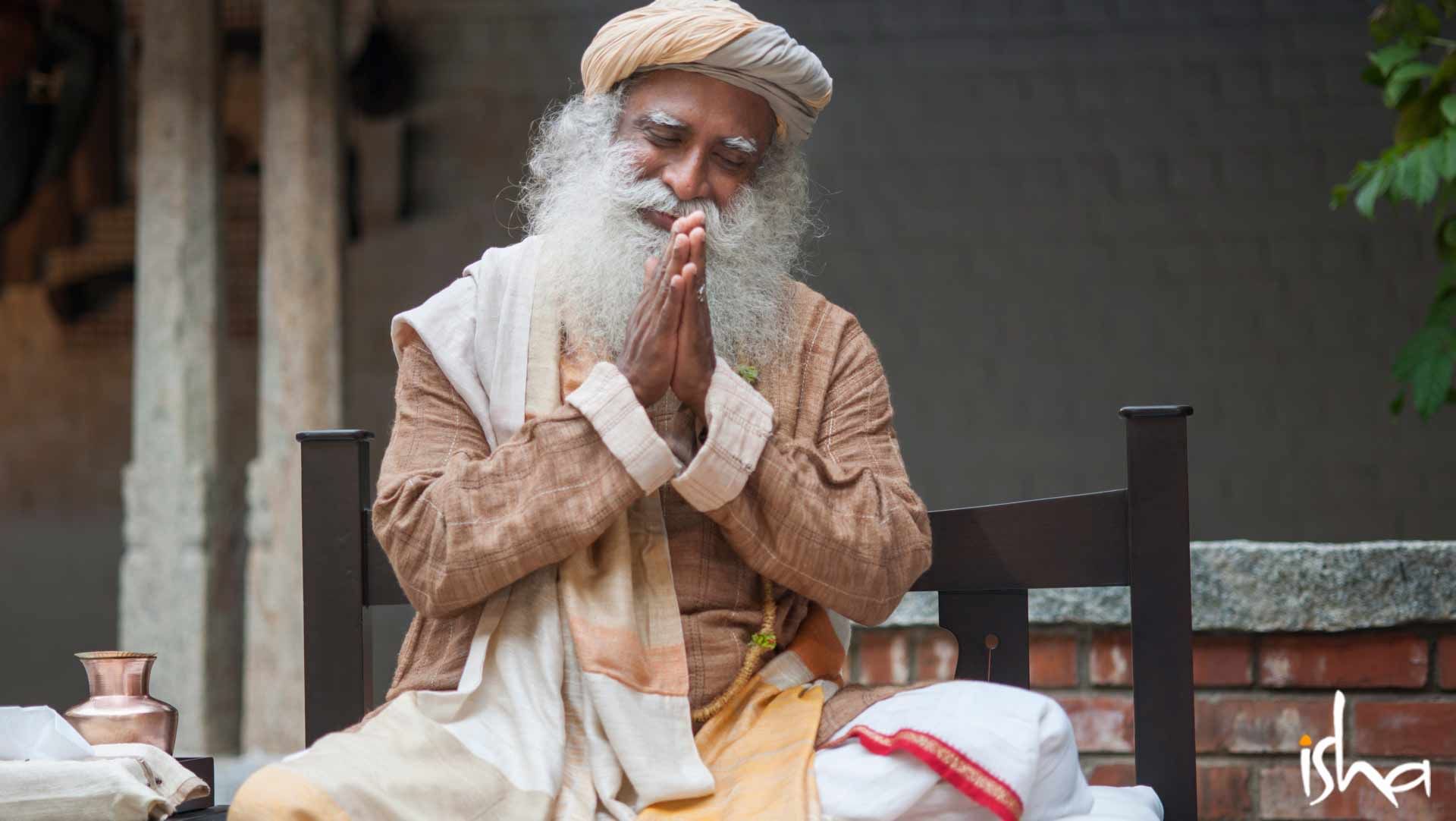Makar Sankranti Festival | Pongal - Time for a Fresh Start
With Makar Sankranti, Pongal, and Uttarayana just around the corner, now is the perfect time for new beginnings. In this week’s Spot, Sadhguru writes about what it takes to “allow yourself and everyone else a fresh start.”

W hen you live in close proximity with the same people for a period of time, you slowly get to know everything about them. Sometimes you see them beautiful, sometimes angry, magnanimous, or petty – everyone’s drama unfolds in front of you. You know how they think and feel. Consequently, you may become hugely opinionated about each individual.
With Bhogi Pongal coming up, this is a time of the year where you are supposed to burn all this old baggage. From Dakshinayana, or the southern run, the sun is shifting to the northern run – from sadhana pada, we are shifting to kaivalya pada. That means it is time to harvest. If you want to harvest, first you have to cut down the crop. Whatever opinions, ideas, and conclusions you may have about other people and about yourself – now is the time to drop them. Everyone has the possibility to flower into a beautiful being. The more opinions, ideas, conclusions, and prejudices you have, the bigger the distance between you and that possibility. Allow yourself and everyone else a fresh start.
There is a beautiful incident in the Ramayana. Previously, many unfortunate events had happened in Rama’s life. He got cheated out of his kingdom, had to retreat into the jungle, and lived a hard life. Then, his wife got kidnapped by Ravana. Out of love and concern for her, he walked all the way down south, gathered an army, crossed over to Sri Lanka, waged a war, defeated Ravana in battle, and slayed him.
Subscribe
As you know, Ravana had ten heads. Rama had to cut off all the ten to finally kill Ravana. With the battle won, Rama said, “I want to go to the Himalayas and do penance, because I have committed a great sin. I have killed someone who was a great devotee of Shiva, a phenomenal scholar, a great king, a generous man.” The others were shocked. Lakshmana, his brother, said, “What are you talking about? He kidnapped your wife.” But Rama said, “Out of the ten heads of his, there was one that had great wisdom, piety, and devotion. I regret cutting off that head.”
Everyone has ten or more heads. One day, your head is full of greed, another day full of jealously, hatred, love, lust, beauty, or ugliness. Or you go through everything in one day. If you see someone in a moment of jealousy, you conclude he is a jealous person. If you see someone in a moment of greed, you conclude he is a greedy person. But actually, at different times, different heads are working in everyone. Everyone has at least one head of love, beauty, generosity, or compassion. The mistake people make is that, instead of identifying a quality, they condemn the individual.
What Rama was trying to say that no matter what horrible things Ravana had done, there was one aspect of him that was a tremendous possibility. Just follow this fundamental principle – if you see something wrong in someone, condemn that, not the person. If you bring this wisdom into your life, you will be free of baggage. When you do this to others, the same will happen to you.
Someone once said, “Love is a thing that happens between a man and woman who do not know each other.” That is true only if you live a frivolous, judgmental life – a life without wisdom. Otherwise, the more you get to know someone, the more love and compassion should arise. When you know all their struggles, you know they are as human as you are.
Rama did penance for having killed a man who had kidnapped his wife and had done many other terrible things. Still, Rama identified this one head that was beautiful about him. This is a man of great wisdom, which is why he is worshipped. He failed in many aspects of his life, but his failures never altered his wisdom and quality. No matter what life did to him, he stayed above that.
I want you to remember Rama’s example throughout the year. If you are sensible enough to identify the quality rather than condemn the person, before Guru Purnima comes and we shift to Dakshinayana, or the southern run of the sun, you should have reaped a rich harvest. A rose plant has more thorns than roses, but we still call it a rose plant because we recognize its beauty. A mango tree has more leaves than mangoes, but we still call it a mango tree because we recognize the sweetness of its fruits.
Every human being has at least one drop of sweetness in them. Why don’t we see this? Please do this with everyone around you – try to recognize that one drop of sweetness in even those people who you otherwise consider to be horrible. Only if you recognize it in others, it will reflect in you. On the other hand, if you see terrible things in other people, that is what will reflect in you. This does not mean you should become blind to everything. You see the leaves in the tree; you see the thorns in the rose bush – but you acknowledge the flower and the fruit. That is all you need to do. Let’s make this happen.


